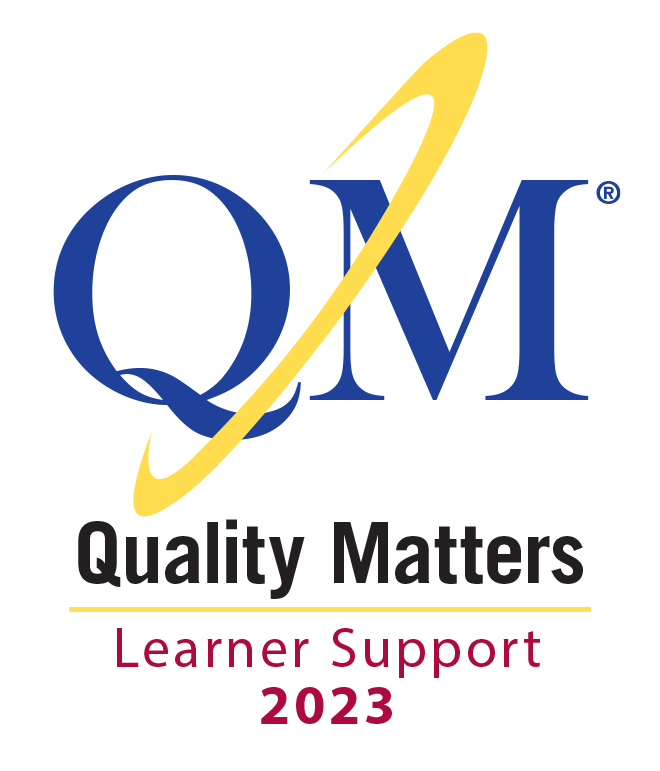Questions? Request Information
Degree Completion Journey
Through your online MPH degree coursework, you will gain an understanding of the biological and social determinants of health while exploring key public health issues through epidemiology, biostatistics, research, and health services administration, as well as a practicum where you will gain real-world professional experience.
To be awarded the Master of Public Health degree, all students must complete 42 credit hours with a 3.0 minimum grade point average in all coursework attempted at UAGC.
In order to transfer credits into the Master of Public Health program, the credits to be transferred must come from a school or program accredited by the Council on Education for Public Health (CEPH).
This program is not designed to meet the state educational requirements for a specific professional license or certification in any state. Students seeking licensure or certification in a particular profession shall carefully research the requirements prior to enrollment and regularly review the requirements as they are subject to change. Requirements vary by state. The University of Arizona Global Campus does not guarantee that any professional organization will accept a graduate’s application to sit for any exam for the purpose of professional certification. Further, a criminal record may prevent an applicant from obtaining licensure, certification, or employment in their field of study.
The Master of Public Health program is not accredited by the Council on Education for Public Health (CEPH). CEPH is an independent accrediting organization whose mission is to serve the public interest by establishing and enforcing quality Accreditation Standards for Public Health programs.
The Online Teaching Support Certification recognizes programs that require all online faculty to undergo training in best practices for online course delivery, provide faculty with ongoing pedagogical support, encourage faculty professional development to increase their knowledge and skill in online teaching, emphasize instructor availability and feedback to learners, and collect and use feedback from learners to improve online teaching. Learn More

The Online Learner Support Certification recognizes programs that provide all the critical student and academic services needed for learner success and use learner feedback to continuously improve those services.

Applicants to the Master of Public Health program are required to pay for, complete and successfully clear a Criminal Background Check (CBC) prior to enrollment into the program.
A second CBC is required prior to site placement for their Practicum. Students will work directly with Sterling Infosystems, Inc. and the approximate cost of each CBC will be $24.00. Applicants are advised that health care organizations (hospitals, home health agencies, clinics, and other types of health agencies) may also require a background check for any student completing a practicum as well as for future employment.
Applicants are advised that healthcare organizations (hospitals, home health agencies, clinics and other types of health agencies) may also require a toxicology screening (TS) prior to placement and that a TS may be required by UAGC or the Site at any time during placement.
Omission of required information or submitting false or misleading information may result in disciplinary action; up to and including being given the option to enroll in a program that does not have a CBC requirement or be given the opportunity to withdraw, at the sole discretion of UAGC.
It is the responsibility of the student to report any events which may impact the CBC or TS that occur after any CBC or TS report has been issued within 72 hours of the event in question. In the event this occurs after placement at a Site, these reports must be made in writing to the site contact with a copy to the Practicum Specialist, but in no case more than 72 hours after the event in question. Failure to comply may result in sanctions, up to and including change of program or withdrawal.
In addition to completing all required courses in your degree program, you will be required to complete a practicum consisting of ninety (90) contact hours with an approved facility. As practical knowledge and skills are essential to a successful career in public health, a planned, supervised, and evaluated practicum is an essential component of a public health professional degree program. The goal of the practicum is to provide an opportunity for you to synthesize, integrate, and apply practical skills, knowledge, and training learned through courses, to gain professional experience in a public health work environment, and to work on public health practice projects that are of particular interest to you.
Prior to beginning a supervised practicum and/or employment in most health care facilities, you may need to provide or successfully complete:
- Background checks
- Toxicology screening
- Blood-borne pathogen training
- Liability coverage
- HIPAA training
- Proof of current immunizations (required of the state) including a two-step TB test (within a year of clinical practicum), MMR or titers, Tdap (10 yr. booster), Varicella, Hepatitis B immunizations or titers, Influenza or record of decline, and/or health clearance from a physician.
Potential locations for your practicum include health care offices, public health offices, community health centers, non-profit organizations, state health offices, other health-related organizations. If the student chooses their previous or current employer to host their practicum, it must be with a different department and supervisor.
Students can only complete their practicum in states where this program is available. All students enrolling in a degree program with a practicum requirement are expected to complete the practicum in the United States and may be required to be available during standard U.S. time zones. If students anticipate that they will not be able to complete their practicum in the United States all exceptions must be approved prior to admission into the program.
Students who reside and/or work outside the United States will be ineligible to complete practicum hours at a facility abroad.
Practicum Equivalent Experience
If you can provide evidence of substantial prior public health experience relevant to program-specific competencies, you may qualify to reduce your total number of required practicum hours by up to thirty (30) hours.
In general, this substantiation would require at least three years of full-time employment in a position or positions related to public health, a demonstration of public health competencies obtained by your employment, and a written statement expressing how your future career endeavors will not be impacted by reducing your Practicum hours. If you who wish to apply for Practicum Equivalent Experience you must submit a Student Petition to Waive Practicum Hours form by your third course. This timeframe allows you to plan a full Practicum should your prior experience not be deemed sufficient.
Customize Your Public Health Degree with UAGC Tracks
The Master of Public Health degree program provides you with an additional opportunity to enhance your knowledge and skills in a specific health discipline. You will select a 15-credit track to complete your program:
-
Become an effective advocate across all public health disciplines. By choosing the Generalist track within your Master of Public Health degree program, you will immerse yourself in the core disciplines of public health, and explore topics such as the integration of science and practice, quantitative foundations, health policy, structural determinants of health, systems thinking, leadership, diversity, and culture. The Generalist track includes five (5) courses that are each three (3) credits.
-
Prepare for a leadership role in your industry. By choosing the Health Care Administration track within your Master of Public Health degree program, you will strengthen your qualifications to manage a team of professionals in multiple health care environments. The Health Care Administration track includes five (5) courses that are each three (3) credits.
Careers Related to Master of Public Health


U.S. Department of Labor data regarding salary ranges and job growth projections are national in nature and do not guarantee employment, any specific salary, or job growth. Also, national long-term projections may not reflect local and/or short-term economic or job conditions. Top Skills are provided via Lightcast job postings data and may not align with UAGC program learning outcomes. UAGC programs are not designed to meet the state educational requirements for a specific professional license or certification in any state. UAGC does not guarantee employment placement, any specific salary from employment, or career advancement.
Meet Our Faculty
Other Degrees That May Interest You
Check out other degree programs that suit a variety of interests and may enhance a wide scope of career opportunities at UAGC. Discover similar programs to find the right path for you.







